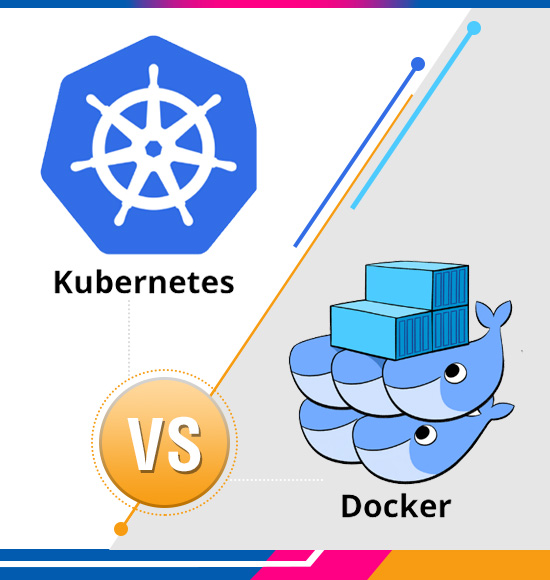What makes Node.js Javascript popular and what are its use cases?
Since the inception of Node.js Javascript, it has taken the software development world by storm by evolving as the most popular development environment. Many factors contributed to the trajectory of Node.js Javascript. For starters, it has a large and active community of developers and has an easy learning curve. Probably this is because business tycoons like Paypal, LinkedIn, and Uber are not only utilizing Node.js javascript for their large development projects but also admiring it.
Node.js javascript is used to create and run a wide variety of web applications. It leverages the benefits of Javascript, which is a lightweight built-in web server. Node.js contains a multitude of plugins managed by Node Package Manager (NPM) which further allows business owners to custom-build their applications to meet the demands of their customers.
What makes Node.js Javascript popular?
Here are the reasons why Node.js Javascript is so popular among Node.js developers.
Quick Execution
The very first thing that strikes everyone’s mind when someone mentions Node.js framework is its execution speed. The execution speed is referred to as the time spent on processing a request which begins from the opening request and concludes with the client receiving the response.
Node.js framework is majorly a javascript framework that is powered by V8 and developed by Google for use in Chrome. V8 tends to compile and execute JavaScript at lightning speed primarily because it compiles JavaScript into a native machine code.
Consequently, reading or writing to file systems, network connections, and databases is executed rapidly in Node. This allows node.js developers to build fast and highly scalable network applications that are capable of handling large amounts of connections simultaneously.
Lightweight Environment
Node.js Javascript uses a basic event-driven architecture. This means everything executed on it, including every single operation, is a series of asynchronous callbacks. This allows Node.js to run on a single thread, unlike other web technologies where a new thread is spawned for each client request. This not only makes Node.js Javascript lightweight but also forms the basis of Node’s non-blocking input-output feature.
Easy to Modify and Maintain
Traditionally built applications become less adaptive over the years to meet new requirements. Eventually, they start cracking up as they are not built for the tasks they do. To the surprise of Node.js developers, developing new services using Node.js is comparatively easier. By utilizing Node.js, a bunch of small applications can be built instead of a large website. This facilitates making changes or adding new functionality with ease without impacting the code-base.
Language Re-use
Another reason behind the popularity of Node.js is its provision for language re-use. Other web technologies like Spring require developers to know another language. This means all Node.js developers need to learn and implement two languages – one that would be required on the client-side and the other on the server-side.
Whereas, Node.js javascript uses only Javascript for the client and server-side. Further enabling Node.js developers to interact only in a single language across all layers. Moreover, language can be reused over and over again for all future communications.
As manifested above, Node.js javascript gives a great boost to the productivity of the team because it tends to use the same programming language on the front-end and back-end. This results in a faster, efficient, and cross-functional development process, which ultimately leads to lower development costs.
Top Use Cases of Node.js Javascript
However, Node.js Javascript works at its optimum for only certain kinds of web applications. Let’s discuss in detail different Node.js use cases to fully comprehend when is it worth considering for web application development.
Streaming Web Apps

All credit goes to the Native Stream API, for enabling Node.js framework to stream web apps. This stream is nothing but a Unix pipe which makes it possible to transmit parts of the application’s executable code to the local system. It also keeps a steady connection for new components to download as and when needed.
As a consequence, streams in Node.js framework do not require caching and storing temporary data as it provides an open connection to the stream’s app data from the server to the local system.
In simpler terms, the Native Stream API of Node.js framework enables downloading only some parts of the application initially. The remaining parts are downloaded in the background as the need arises.
Real-Time Collaboration Tools
Real-time collaboration tools are widely used for project management, co-browsing, audio, video conferencing, collaborative document editing, and much more. In these solutions, I/O requests and events occur simultaneously. For instance, in a project management solution, multiple users can write comments, update status, and attach media to the project.
Since Node.js can handle heavy I/O operations efficiently, it has become a preferred choice among Node.js developers for building real-time collaboration tools.
Trello – a project management and team collaboration tool, adopted the Node.js framework for its event-driven and non-blocking architecture to instantly update its collaborative environment.
Single-Page Applications
As the name suggests, single-page applications are aimed to fit the entire application on a single page to provide a desktop app-like experience. Node.js framework is well-suited for building SPAs applications as they can effectively handle the asynchronous calls and heavy I/O operations.
Moreover, Node.js javascript also works well with data-driven applications in which the server acts as the backend to transmit data to the client and the client-side does all the HTML rendering. Since Node.js and browsers use Javascript, the amount of development time gets drastically reduced and ultimately results in better maintainability.
Real-Time Chat Applications
Real-time chat applications are highly popular nowadays. They have become a necessity, especially for commercial sites and digital products. A chat application is one of the best use cases for the Node.js framework, since the framework is data-intensive, high traffic, and lightweight that is capable of running across several distributed devices. Node.js contains all the basic functionalities for building such applications. Node’s event API makes it possible for Node.js developers to implement server-side events. And push notifications which are widely used in most real-time chats.
Moreover, the WebSockets in Node.js facilitates a two-way exchange via an open connection. This is especially ideal for real-time chat app development. For instance, Node.js developers can install WebSockets libraries like sockets.io or WebSocket-node to deploy real-time chat applications rapidly and smoothly.
Building Microservices Architecture
Microservices Architecture is an approach to developing a web application as a group of small, independent services in which each service plays a unique role. Lately, microservices architecture has become extremely popular, especially after the emergence of Amazon, Facebook, and Netflix.
Node.js framework is the perfect fit for building such microservices-based architecture. Because it facilitates mounting various instances of servers for individual microservices and designing appropriate routing addresses for them. Moreover, the lightweight tendency of Node.js can significantly enhance the scalability, maintainability, and efficiency of a web application.
Node.js framework has become the number one choice for developers who wish to build exceptional web applications. It is the perfect choice for those who wish to build apps. Especially apps that involve dealing with heavy client-side rendering, frequent shuffling of data, multiple concurrent requests, and much more. That being said, if you plan to hire an expert Node developer, Copperchips will be the most suited for the said job.
We at Copperchips have expert Node.js developers. We are providing exemplary services of web and mobile development and we are in this digital industry for about 2 years now. Our illustrious clientele is spread across India as well as foreign lands. Our previous experience and our distinct skills make us highly competitive and an attractive option for our clients.




